Frankenstein is a novel written by English author Mary Shelley that tells the story of Victor Frankenstein, a young scientist who creates a grotesque but sapient creature in an unorthodox scientific experiment. Frankenstein is infused with elements of the Gothic novel and the Romantic movement. At the same time, it is an early example of science fiction. Brian Aldiss has argued that it should be considered the first true science fiction story because, in contrast to previous stories with fantastical elements resembling those of later science fiction, the central character "makes a deliberate decision" and "turns to modern experiments in the laboratory" to achieve fantastic results. It has had a considerable influence in literature and popular culture and spawned a complete genre of horror stories, films and plays. Since the novel's publication, the name "Frankenstein" has often been used to refer to the monster itself, as it is in the stage adaptation by Peggy Webling. This usage is sometimes considered erroneous, but usage commentators regard it as well-established and acceptable. In the novel, the monster is identified by words such as "creature", "monster", "demon", "wretch," "abortion," and "it". Speaking to Victor Frankenstein, the wretch refers to himself as "the Adam of your labours", and elsewhere as someone who "would have" been "your Adam", but is instead "your fallen angel" (which ties to Lucifer in Paradise Lost, which the monster reads, and relates to the "modern" Prometheus of the book's subtitle). Frankenstein is written in the form of a frame story that starts with Captain Robert Walton writing letters to his sister. It takes place at an unspecified time in the 18th century, as the letters' dates are given as "17".
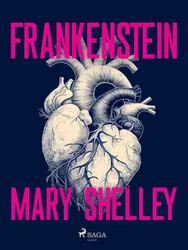
Frankenstein
Mary Shelley
book
The Power of Darkness: 560+ Supernatural Thrillers, Macabre Tales & Eerie Mysteries : The Legend of Sleepy Hollow, Sweeney Todd, Frankenstein, Dracula, The Haunted House, Dead Souls…
Wilhelm Hauff, Charles Dickens, Mark Twain, Harriet Beecher Stowe, Adelbert von Chamisso, Oscar Wilde, Robert Louis Stevenson, Edgar Allan Poe, William Hope Hodgson, Joseph Sheridan Le Fanu, John Buchan, Louis Tracy, Bram Stoker, Anatole France, Charlotte Brontë, Emily Brontë, Jack London, Henry James, Théophile Gautier, Arthur Conan Doyle, Richard Le Gallienne, Jane Austen, Ralph Adams Cram, Thomas De Quincey, John Meade Falkner, Guy de Maupassant, Thomas Hardy, William Archer, Daniel Defoe, John Kendrick Bangs, Cleveland Moffett, Brander Matthews, Marie Belloc Lowndes, Horace Walpole, Rudyard Kipling, Lafcadio Hearn, Hugh Walpole, Ambrose Bierce, Frederick Marryat, Ellis Parker Butler, Washington Irving, Leonid Andreyev, David Lindsay, Nathaniel Hawthorne, Grant Allen, Arthur Machen, Wilkie Collins, William Makepeace Thackeray, Thomas Peckett Prest, James Malcolm Rymer, Fergus Hume, Edward Bellamy, Walter Hubbell, Charlotte Perkins Gilman, Leopold Kompert, Richard Marsh, Florence Marryat, Catherine Crowe, John William Polidori, Vincent O'Sullivan, H. G. Wells, Robert W. Chambers, W. W. Jacobs, M. P. Shiel, E. F. Benson, Jerome K. Jerome, M. R. James, E. T. A. Hoffmann, Stanley G. Weinbaum, George W. M. Reynolds, H. P. Lovecraft, Robert E. Howard, Edith Nesbit, Sabine Baring-Gould, William Thomas Beckford, Francis Marion Crawford, Lucy Maud Montgomery, Mary Elizabeth Braddon, Mary Louisa Molesworth, Mary E. Wilkins Freeman, Nikolai Gogol, Mary Shelley, Elizabeth Gaskell, Edward Bulwer-Lytton, Frank R. Stockton, A. T. Quiller-Couch, Ann Radcliffe, Louisa M. Alcott, Amelia B. Edwards, Leonard Kip, Matthew Gregory Lewis, Fitz-James O'Brien, Katherine Rickford, Bithia Mary Croker, Catherine L. Pirkis, Émile Erckmann, Alexandre Chatrian, Pedro De Alarçon, H. H. Munro (Saki), Pliny the Younger, Helena Blavatsky, Villiers l'Isle de Adam, William F. Harvey, Fiona Macleod, William T. Stead, Gambier Bolton, Andrew Jackson Davis, Nizida, Walter F. Prince, Chester Bailey Fernando
book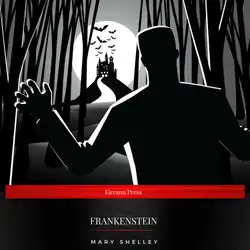
Frankenstein
Mary Shelley
audiobookbook
Transformation and other stories (Legend Classics)
Mary Shelley
book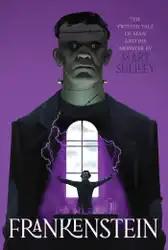
Frankenstein
Mary Shelley
book
Mathilda : Roman
Mary Shelley
book
World's Greatest Short Stories
Daniel Defoe, Benjamin Franklin, Washington Irving, Mateo Falcone, Charlotte Bronte, Mary Shelley, Nathaniel Hawthorne, Nikolai Gogol, Edgar Allan Poe, Fyodor Dostoyevsky, Charles Dickens, Herman Melville, Mark Twain, Guy de Maupassant, Oscar Wilde, Leo Tolstoy, H.G. Wells, Ambrose Bierce, Stephen Crane, Kate Chopin, Jack London, E.M. Forster
audiobook
75+ Horror Anthologies
Edgar Allan Poe, Bram Stoker, Mary Shelley, Joseph Sheridan Le Fanu, Robert Louis Stevenson, Howard Phillips Lovecraft, Algernon Blackwood, Francis Marion Crawford, Robert W. Chambers
audiobook
Frankenstein :
Mary Shelley
audiobook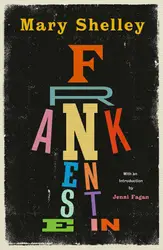
Frankenstein : New Edition of Mary Shelley's Gothic Masterpiece
Mary Shelley
book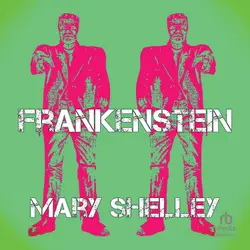
Frankenstein
Mary Shelley
audiobook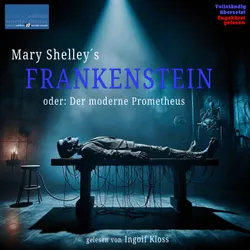
Mary Shelley´s FRANKENSTEIN : oder: Der moderne Prometheus
Mary Shelley
audiobook
